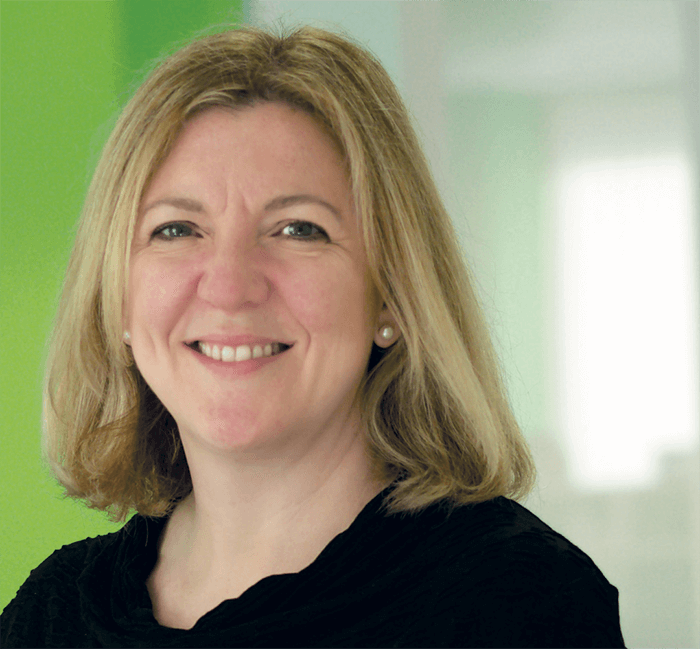
It’s funny, isn’t it! I spent 15 years in investment banking, mostly advising UK and African companies on raising money, and on mergers and acquisitions. I decided that I wanted to do something different, and something I was passionate about, so I made a major life change and went to run the charitable foundation at University College London Hospitals. I discovered how excited and passionate I was about the medical research we were funding, and I found the difference it could make to people’s lives utterly fascinating. My parents had always supported sight loss charities, so when I saw an advert for the role of CEO at Fight for Sight, it all just seemed to fall into place. I could see a huge unmet need in terms of actually being able to stop people losing their sight, yet the UK is perfectly placed to help. We have fantastic and highly committed clinicians and academic researchers, but it was absolutely clear to me that they needed more financial support to deliver outcomes for patients. I feel thrilled and privileged that I have been able to take on this role.
One of the biggest changes from investment banking was not so much moving to a charity, but moving to a much smaller organization. It was an enormous shock to go from a bank that employed thousands of people to working for an organization of three. Now, we employ 25 people and are funding research at 44 different universities and hospitals, having started by funding just two main institutions. Actually being able to develop Fight for Sight as a national charity and see the breadth and variety of research that is being funded, as well as the impact it can have, is tremendously exciting and rewarding.
Over my 11 years in this role, I have seen huge changes and significant progress in being able to address sight loss. I think one of the biggest areas of excitement is around the development of potential treatments for people with inherited retinal diseases. Fight for Sight has invested millions in understanding these diseases, as well as investing in research that has helped lead to clinical trials – the first in the world. It’s exciting to see the first gene therapy drug for an inherited eye disease, Luxturna, being approved by the FDA. At Fight for Sight, we not only want to fund the necessary research but we want to do all that we can to ensure that patients are able to access new treatments.
There is no typical day… One of the great privileges of this job is the huge variety of people that I come into contact with – from the fantastic people who support Fight for Sight – many of whom are affected by sight loss – to the talented researchers we support and the charity and government partners that we work with. My day could involve meeting committed supporters (perhaps watching them do a skydive!), researchers, representatives from government and other organizations, talking to the media and speaking at sector and industry conferences.
We have a big team who are doing a skydive this year but it’s not for me – I prefer things that involve stamina, such as trekking up a mountain or running a marathon. My first challenge for Fight for Sight was the London Marathon. I have also climbed Mount Kilimanjaro. I’m thinking about doing a triathlon next but I’ll have to work on my swimming – I’m not sure I can do a triathlon with breaststroke!
One personal mission is aligned with Fight for Sight; we launched our new strategy last year, and our ambition is to significantly increase our impact. To do this we need to increase our income in what is a difficult fundraising environment. We hear many people say that sight loss is inevitable. We need to change the narrative away from acceptance to the belief that research can and will deliver new and better treatments. The advances in science over the last 10 years are now showing that this is possible.
I’d also like to see women thriving in vision, by helping to support real change in the gender balance at senior levels across ophthalmology and optometry over the next 10 years – we need to utilize all talent to maximize outcomes for patients. Finally, I want to add some form of balance in my life and actually do some exercise – essential if I want to do a triathlon!
